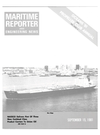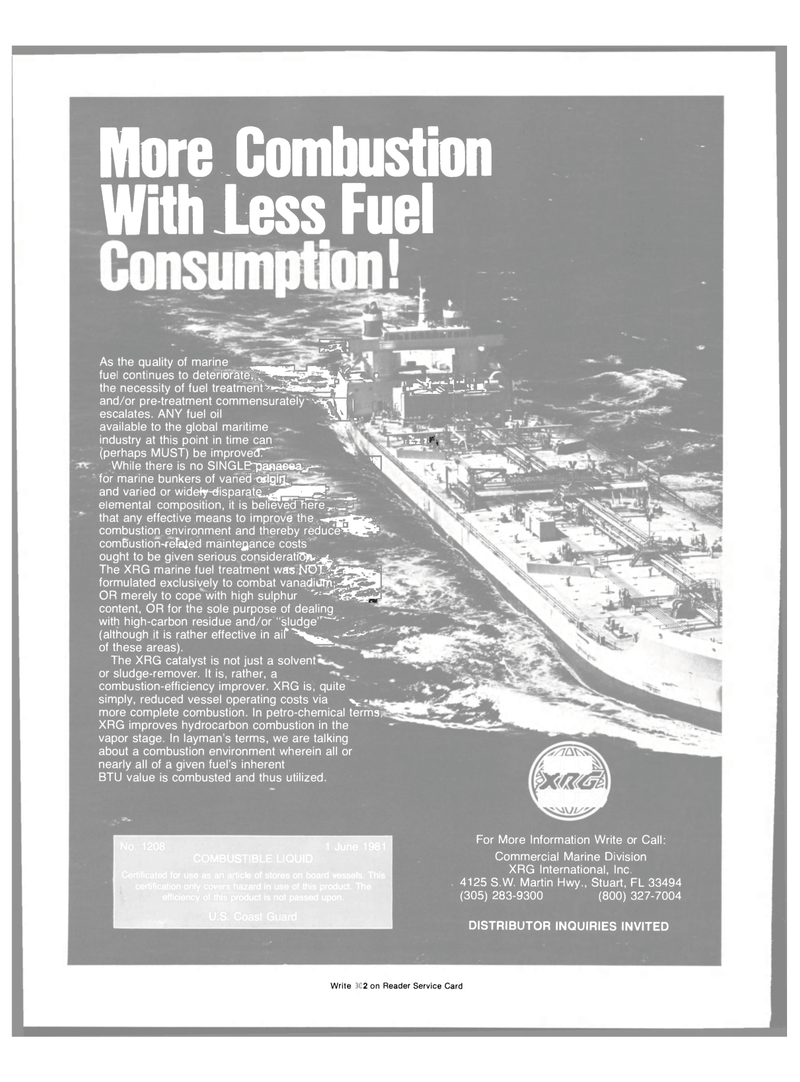
Page 20: of Maritime Reporter Magazine (September 15, 1981)
Read this page in Pdf, Flash or Html5 edition of September 15, 1981 Maritime Reporter Magazine
More Combustion With JLess Fuel
SB
As the quality of marine fuel continues to deteriorateT^IJBwJ^J^aBt.^' the necessity of fuel treatment^»r^3£SJj and/or pre-treatment commensurately | escalates. ANY fuel oil .. available to the global maritime industry at this point in time can (perhaps MUST) be improvedT "
While there is no SINGLE-panacea^- ^ for marine bunkers of vaned origin and varied or widefy-disparats^fiB®^' elemental composition, it is beNevecniere , Jt" that any effective means to improve the ^yggafc^- combustion environment and thereby reduce*^^1 combustion-refajed maintenance costs ought to be given serious considerate*^
The XRG marine fuel treatment was NOXpgg&fcj formulated exclusively to combat vanadiatfi^^^P
OR merely to cope with high sulphur ' ^^f^Lt content, OR for the sole purpose of dealing with high-carbon residue and/or "sludge""^* * , (although it is rather effective in air'^^^^-c-^-^ of these areas).
The XRG catalyst is not just a solvent or sludge-remover. It is, rather, a combustion-efficiency improver. XRG is, quite simply, reduced vessel operating costs via ^ * more complete combustion. In petro-chemical terms
XRG improves hydrocarbon combustion in the vapor stage. In layman's terms, we are talking about a combustion environment wherein all or nearly all of a given fuel's inherent
BTU value is combusted and thus utilized. * '.-^ti^ifC >2*1*4 mm warn
No. 1208 ; 1 June 1981
COMBUSTIBLE LIQUID
Certificated for use as an article of stores on board vessels. This certification only covers hazard in use of this product. The efficiency of this product is not passed upon.
U.S. Coast Guard
For More Information Write or Call:
Commercial Marine Division
XRG International, Inc. 4125 S.W. Martin Hwy., Stuart, FL 33494 (305) 283-9300 (800) 327-7004
DISTRIBUTOR INQUIRIES INVITED 22 Write 142 on Reader Service Card

 19
19

 21
21
